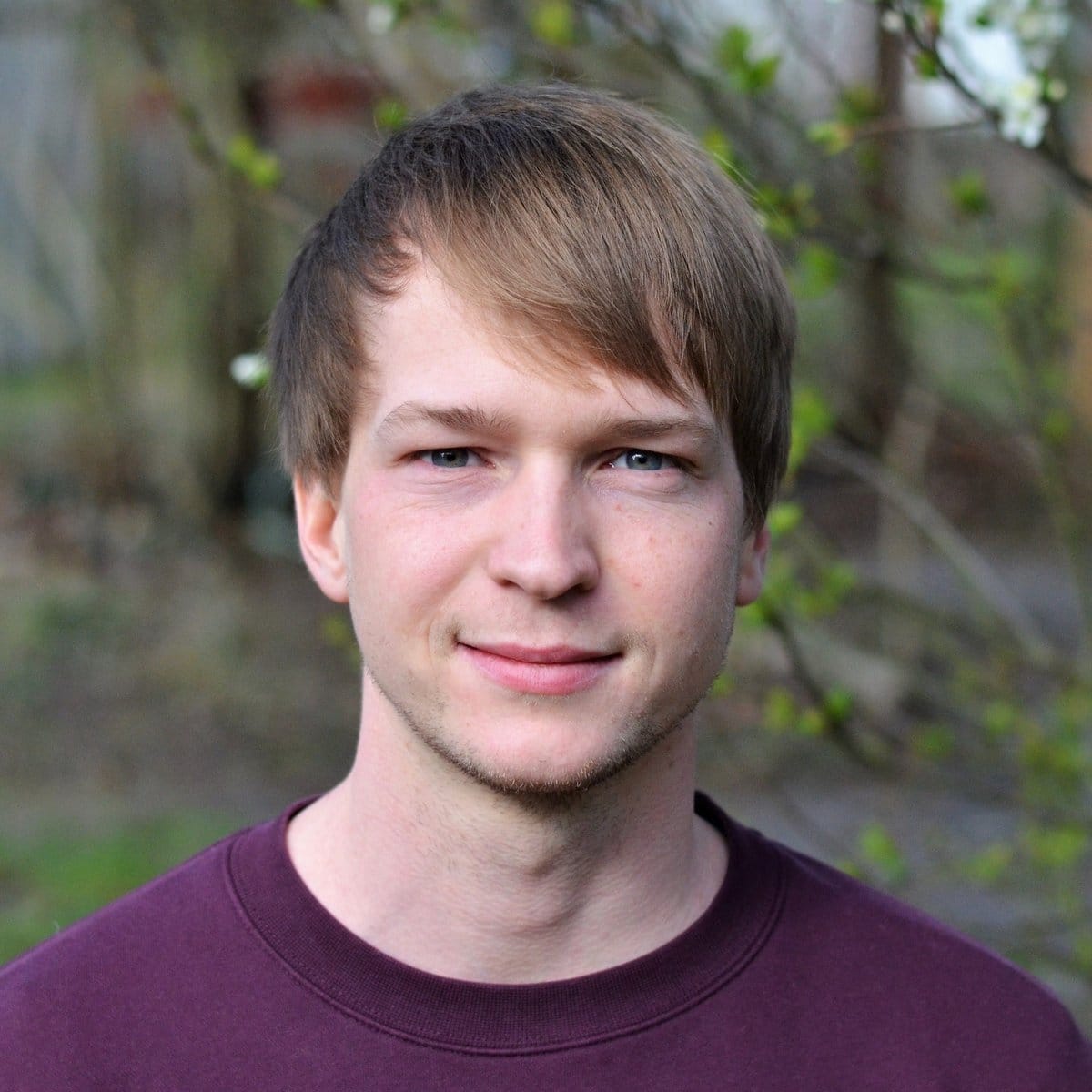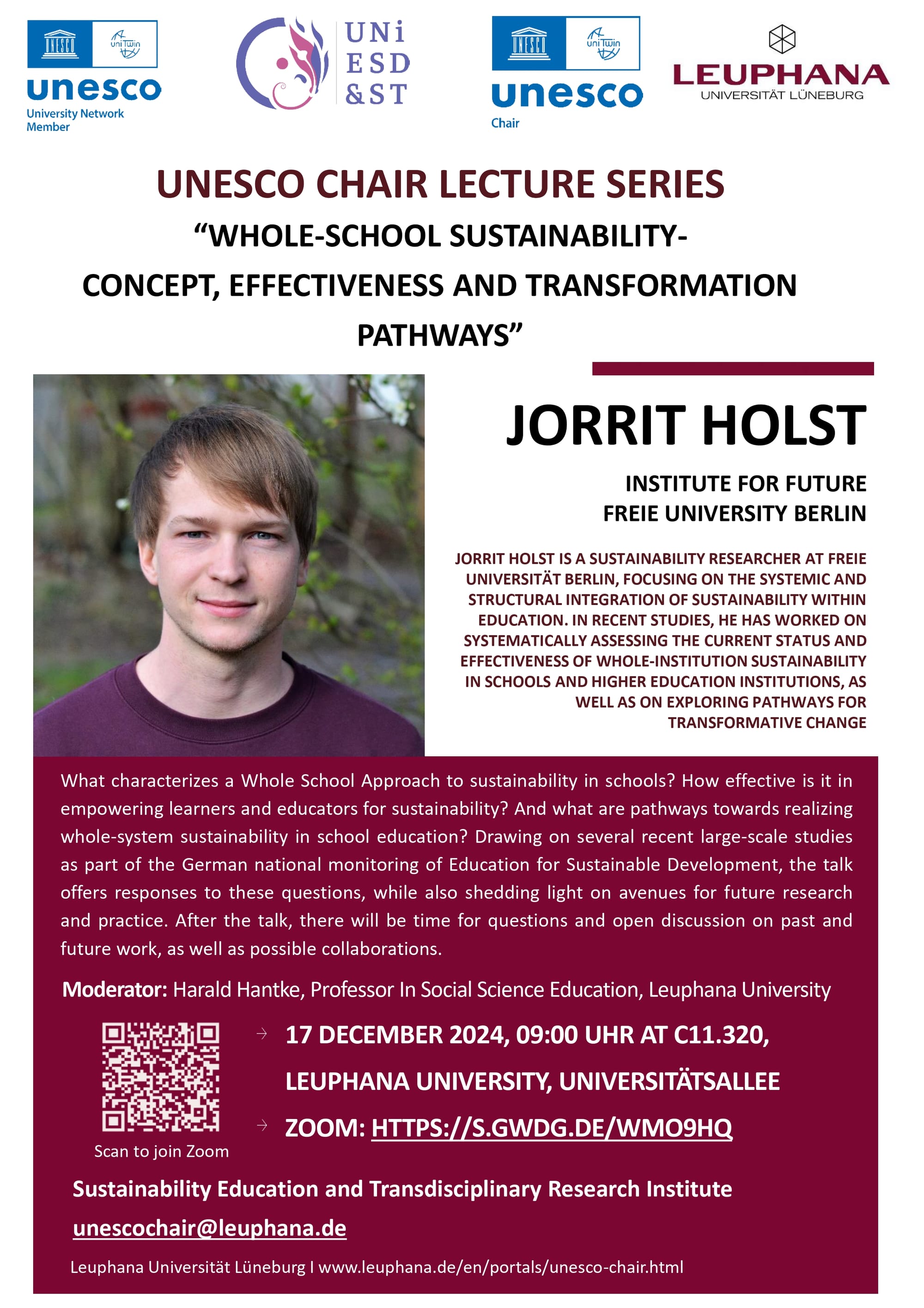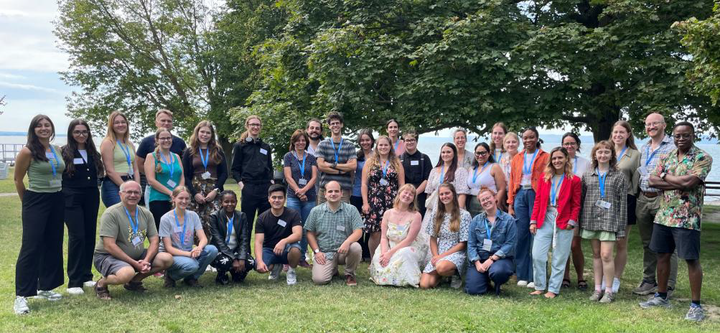UNESCO Chair Lecture Series: Jorrit Holst on “Whole-School Sustainability: Concept, Effectiveness, and Transformation Pathways”

The UNESCO Chair Lecture Series, hosted by the UNESCO Chair in Higher Education for Sustainable Development at Leuphana University Lüneburg, was launched in the winter semester of 2025. It builds on and continues the legacy of earlier dialogue formats at our department, including the Institute for Sustainable Development and Learning’s series “In Conversation with …” and the UNESCO Chair’s “Rethinking Higher Education” series.
In this series, we bring together scholars from around the world to share their research and diverse perspectives on sustainability and Education for Sustainable Development (ESD). Designed as a hybrid format, the lectures offer a space for dialogue, exchange of ideas, and critical reflection on the role of higher education in shaping sustainable futures.
We are now happy to share some of the lectures we hosted in previous semesters.

The UNESCO Chair Lecture Series commenced on 17 December 2024 with a lecture by Jorrit Holst from the Institute for Future at Freie Universität Berlin.
In his talk, “Whole-School Sustainability: Concept, Effectiveness, and Transformation Pathways,” Jorrit shared insights from his recent research on sustainability in education. He highlighted the Whole-School Approach (WSA) as a framework for turning schools into experiential spaces for sustainability learning, political literacy, and active citizenship that could empower both learners and educators to address collective sustainability challenges.
Jorrit also introduced the WSA-Scale, a tool to assess the extent to which sustainability is experienced by learners and educators across all areas of action of whole-school sustainability in everyday life.
Key takeaways from the lecture included:
- Prioritising sustainability as a core feature of quality education at all levels, from policy to practice.
- Shifting from sustainability as an ‘add-on’ to sustainability as the structural default mode – viewing it as an ‘epochal key challenge’ that requires systemic, transformative changes.
- Fostering democratic participation and citizenship literacy through experiential learning and collaborative action.
We sincerely thank Jorrit Holst for this inspiring opening lecture and his contribution to advancing whole-institution approaches in sustainability education.
About the speaker:
Jorrit Holst is a sustainability researcher at Freie Universität Berlin, focusing on the systemic and structural integration of sustainability within education. In recent studies, he has worked on systematically assessing the current status and effectiveness of whole-institution sustainability in schools and higher education institutions, as well as on exploring pathways for transformative change.





